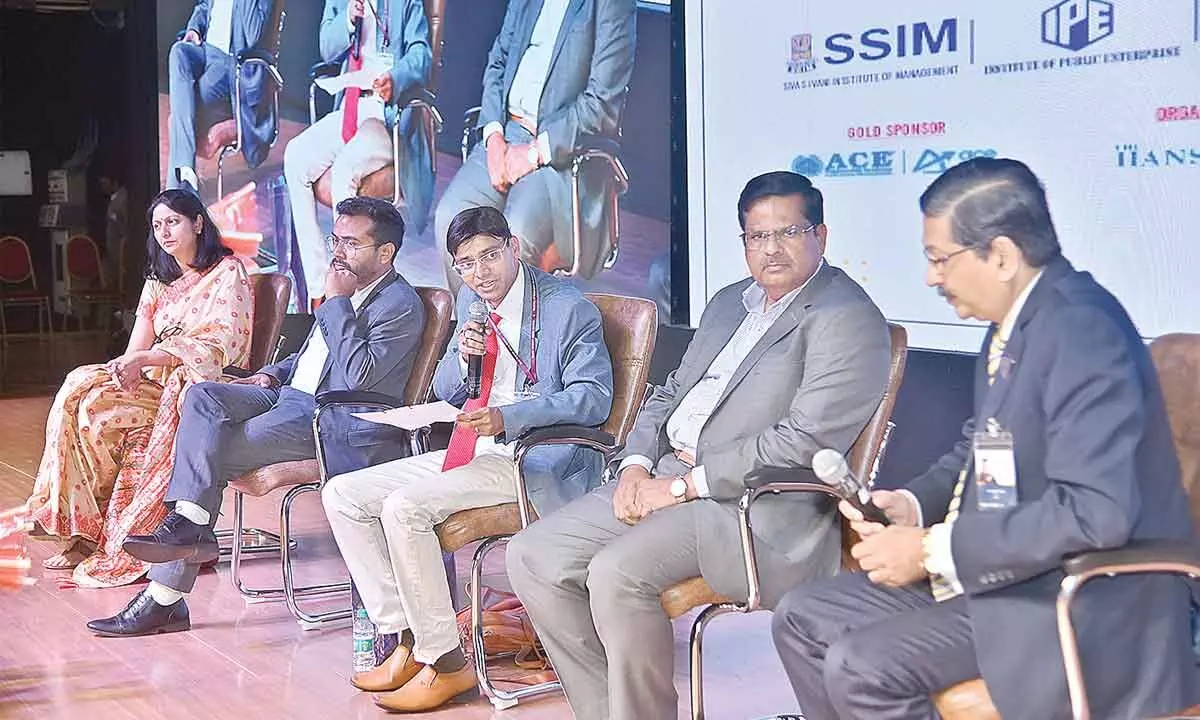NEP is empowering education to produce innovation

Session- I Panelists: Anju Sharma, Principal, Phoenix Greens International, Dr Rama Shankar Yadav, Assistant Professor HRM- Indian Institute of Management Rohtak, Dr Buddha Chandra Shekar, Chief Coordinating Officer- AICTE, Prof Dr V Balakista Reddy, Registrar- NALSAR University of Law, Hyderabad and Dr Shrikant Sinha, CEO – Telangana Advance Skill & Knowledge
National Education Policy (NEP) so far is known as student-centric, creative-centric, and innovation-centric.
Hyderabad: The National Education Policy (NEP) so far is known as student-centric, creative-centric, and innovation-centric. There is a need to add another term 'research-centric' which will focus on motivating students and stakeholders to lay greater emphasis on research.
This was the gist of the opinion expressed by a panel of distinguished speakers on day-one of the Conference on
'National Education Policy' (NEP) organised by The Hans India.
The panellists said that National Education Policy was a welcome measure though it came a bit late. They said that the NEP is inclusive as it involves everyone, with specific strategies that will be created to reduce dropouts in SCs, STs and OBCs.
The NEP 2020 will produce millions of skilled workers, entrepreneurs, innovators and researchers. The NEP is a need based on the pillars of access, equity, quality, affordability and accountability.
The panellists who represented various fields, Education, Industry, Academics, Universities and Skill Development said that the NEP if properly implemented can transform education to empower and learn to lead. The session generated a lot of interest among the students who were over 2,000 and wanted to know how NEP could impact the courses they were pursuing now.
Interestingly, some of them asked the panellists, "What should we tell our parents when they say, become a doctor or engineer because we need to answer our relations and society. In such circumstances how does one convince them and choose what we want."
The panellists explained to them that the change would not come instantly, this was just a beginning and the change will come gradually. Policy alone cannot change everything. Knowledge combined with latest skills can transform the lives of the students and India can be placed much ahead of other countries, they said.








